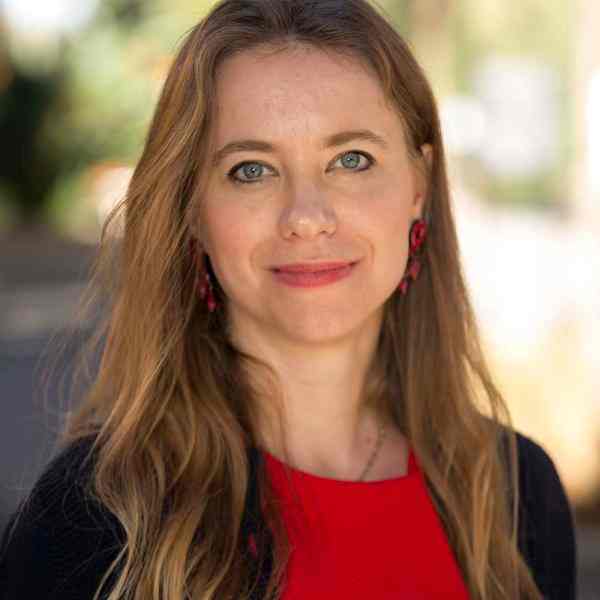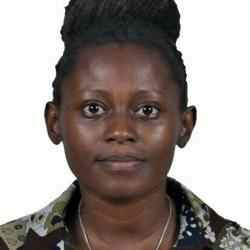Introduction
Giulia is putting youth at the center of addressing issues related to the environment such as climate change by creating the relational infrastructure, skills, tools, and knowledge that promotes civic participation in their communities. By tapping into the passion youth have for creating a sustainable future, Giulia is taking the road that gives us all the best chance to continue to co-exist with our natural environment.
The New Idea
According to the International Labor Organization, there is the potential to create up to 60 million new jobs in the green economy by the year 2030. This growth in the green economy not only potentially addresses the bulging youth unemployment pandemic but also provides a direct opportunity to address challenges linked to the environment and climate change. At the same time, it is gently recognized that young people are more concerned about the future of their planet and the environment than the generations preceding them. This can be seen by the exponentially growing activism and changemaking activities led globally by youth, such as the decentralized #fridaysforfuture movement.
Leveraging and recognizing both the problem and opportunity at hand, Giulia is creating an ecosystem of stakeholders in Italy, such as local businesses, companies, schools, local governments, parents and more to act as the support infrastructure for youth to develop ‘green skills’ and then be able to use these to be at the center of the shift towards green economy in her country. Giulia believes that youth are the instrumental actors to fast-track innovations that can lead to sustainable development outcomes.
To bring her vision to life, Giulia is reimagining the entire value chain for youth participation in the green economy, from the education and training they receive, the support mechanisms available in their community to implement localized solutions to leveraging the strengths of stakeholders such as corporations who have the appetite and resources for innovation. In doing so, Giulia is allowing young people to dream about a future that protects the environment, develop the necessary skillsets to start participating in their communities to solve problems and then have their ideas institutionalized and measured for positive social and environmental impact. This entire process helps create mindset shifts in youth and all those around them, from seeing themselves as passive observers of changemaking activities to the most important active participants in this change. Giulia is also looking at the current governance structures in place in her country, especially at the local government level and using advocacy to create roles for young people to have a voice on environmental issues.
The Problem
The devastating consequences of a changing climate are no longer a thing of the future, in many parts of the world it is here, it is being felt and the damage is already done. What is true is that a disproportionate impact of this is being felt by the most vulnerable communities in our world, including the least developed country belt and also youth who will inherit the problem at a much larger scale. At a macro-level, the severe environmental impact can be seen in the increase in our ocean temperatures of 0.13 degrees Fahrenheit per decade on average since 1880, with the rate doubling since 1980. If the world continues to burn fossil fuels at the current rate, global warming will rise 2 degrees Celsius by 2036, crossing a dangerous threshold for civilization.
At a more micro and granular scale, many of today’s environmental problems are occurring at a local level, where “local” refers to a municipal jurisdiction, a neighborhood, a private property or even a dump or industrial site. Excessive deforestation, unsustainable consumption patterns, improper waste management and industrialization are just some examples of where the gun is fired, and the journey of environmental degradation begins. Many of these local environmental problems are visible and felt by communities and many others are predicted to show dire consequences within the adult timeframe of today’s youth.
Data from the European Social Survey from 2018 indicated that European citizens level of awareness on environmental issues has increased in recent years, both in terms of perceived impact of issues globally and in terms of the consequences of individual actions. Of the 23 countries surveyed, close to 90% of participants expressed awareness that the global climate is changing, however, only a quarter responded to be extremely concerned about the issue. A closer analysis of this data points to a few important reasons as to why the concern is lagged among the majority of citizen populations. The first is that the current generation of adults mainly will not be around to see the dire consequences of man-made environmental damage, re-enforcing the ‘what you can’t see, you don’t care about’ narrative. Secondly, individuals surveyed largely believe that their actions cannot make a difference that is sustainable both because of the enormity of the problem and secondly because a lack of know-how on skills required to do so.
The resultant impact is that the problem remains a recognized concern that is easily pushed aside, while the larger systemic issue continues to fester at an alarming rate. What is equally as important is the fact that a lack of enthusiasm shown to address environmental problems at a local level percolates into the huge potential of a future green economy not being met. Studies globally have shown that if governed and planned properly, economies all over the world can use green entrepreneurship and community involved as an injection to fuel a movement towards a green economy, which is driven by citizens, the private sector and government all with the allied concerns of having environmental protection as a key goal of all human activity, while continuing to evolve and progress as societies. Green entrepreneurs in particular have the potential to be at the cutting edge of innovation, hiring millions of people globally and setting the foundations for strong community level action on environmental protection.
When the demand for such a future is missing, this funnels down to what is being taught to today’s youth within a classroom setting. Environmental education has largely been stagnant and remained a largely scientific based explanation to students, rather than an accessible, aspirational, and encouraging field or work to pursue later on in their lives. The limited activity that does exist within a classroom setting on environmental action is usually encouraged by high energy, low leverage citizen organizations, which excite youth to problem solve but usually quickly fizzles out due to a lack of structured monitoring of their own ideas and innovations and a continuum of support. Much of this is theoretical problem solving without any interaction and exposure with the natural environment.
Giulia believes that if anyone has the ability to overturn this reality, it is today’s youth. Her vision is to create the infrastructure, systems and spark that allows youth in Italy and beyond to start environmental problem solving while at school and then continue this into their adulthood.
The Strategy
Giulia is establishing a network of actors around young people to inspire, promote and amplify action towards environmental action in their local communities. Rooted in the belief that today’s youth need systematized and institutionalized access to skills and networks that support environmental action, Giulia is establishing a paradigm shift across the entire value chain by changing existing roles and beliefs while creating new ones for stakeholders to help create this vision. Powered by her organization InVento Labs, the first in Italy focused on the intersection of entrepreneurship skillset development and environmental action for youth, Giulia is curating an opportunity for all students to have the chance to be at the center of environmental action.
Giulia’s model follows a three-pronged approach, namely, awareness, learning and skill building and lastly ecosystem development and advocacy. Giulia identifies schools and education ecosystems as the core partner in her model as it is the one central system most young people participate in. By partnering with schools across Italy, she is able to start introducing her program offerings to the school leadership, teachers, and student body, which compromises of curriculum that shifts environmental education from scientific theory and jargon to actual experiential and participatory learning. A majority of her education innovation is borrowed from biophilic design, which is a methodology used in the building industry with the purpose of increasing occupant connectivity to the natural environment.
Once a school is identified with the support of local implementation organizations, Giulia immediately focuses on handing over ownership of her model to the school leadership and especially teachers and students. School students are organized, create roles for themselves and design the management system of their own ‘environmental education’ experience. For example, in one particular school there is a student who is the president of the program, and their peers take on other responsibilities. Giulia believes that this is an anchor that incentivizes greater participation and hence a better connection to the learning material over time. Further, Giulia through advocacy has her model endorsed by the Education Ministry of Italy, who are not only championing the scale of the model but also recognize each participant in the programs by providing a personalized certificate. This becomes a leverage point for Giulia to work with school leadership and teachers across the country to adopt this type of teaching into their curriculums and not see it as an ‘extra-curricular’ activity.
Giulia’s aim is to empower students to not only start participating in environmental action but also develop serious skillsets that gives them every chance of being the entrepreneurs who will drive a future green economy. Thus, much of the established curriculum and activities of her model also focuses on business skill development, leadership, and other such necessary capacity development areas. InVento Labs has creatively balanced the offerings to youth and schools between things that can have school level ownership, such as educational curriculums and also ensuring that there is ecosystem level support to continue engaging youth around environmental participation. Thus, summer schools, mentorship programs with skilled professionals, internships, e-learning courses, national competitions, and other activities continue to be offered to the growing network of schools adopting the model. This provides an avenue for students to not only learn about environmental education and develop skillsets but to also come up with their own ideas and have the potential to grow them through impact.
A core part of InVento’s in school curriculum is to encourage students to establish teams, ideate and come up with ideas for environmental problems that they themselves have understood and seen. This learning to action model allows the youth to implement the cadre of knowledge and skills they learn through the offerings in the program. All students who form teams and participate are automatically taking part in competitions that are established by InVento and supported by big corporations, local businesses and of course the government. This excites and incentivizes students to take the projects seriously and aim to work towards something beyond just the environmental impact. Giulia has further engineered an online system for each student team to be able to monitor and evaluate their environmental impact, measure benchmarks and progress and create a collaborative tool for students in each school to support each other’s growth. This is important because students are able to directly track and measure their progress as they continue to implement their ideas, thus understanding where they can improve.
An example of a solution that students have come up with is ‘Greenchoice,’ in which a group of school students have partnered with local farms and businesses to agree to provide discounts to young people for goods if they engage in positive environmental action in their communities. In another part of Italy, team ‘Redivivus’ is working with local businesses such as gyms, public swimming pools and motels to replace plastic packaging containing shampoo with alternate materials such as water soluble and recyclable materials. As a majority of student solutions require engagement with local communities, students not only challenge themselves to develop essential skills such as negotiation but more importantly inspire community buy in to environmental action. Parents who are shop owners, workers and local members also start to play an active role and demand for this type of education for their own children. Most importantly, there is a recognition of the potential and need for young people to be as equal participants in solving environmental challenges as anyone else. Youth who have participated in the programs in some parts of Italy have been invited to have their say on key decisions that have environmental impacts in local municipalities.
To further amplify a growing network effect and scale her model, Giulia has created a digital platform that collectivizes stakeholders, students, new schools (who want to sign up), activities and interactions between members. This social engine that is created through the digital platform is allowing many more participants to interact with environmental and entrepreneurial education while participating in ecosystem activities such as competitions, local meet ups and so on in their communities. Giulia sees the digital platform as being the future scale engine, especially given the restrictions of mobility and connectivity during the ongoing COVID- 19 crisis. This digital platform also serves as the anchor point for interest in adoption of this model across the world, which has already started and is gathering pace quickly. The network of schools expands across the UK, Switzerland, Portugal, Australia, and Brazil. These schools in real time can demand information and support from the InVento Labs team, whom them develop the relational infrastructure with the people who locally can provide that support. For example, mentors from corporates who can guide students on their business model is one such demand. Finally, Giulia also actively engages with networks of companies who sponsor school programs and also provide human capital from their staff to co-design projects with youth around sustainability. Company representatives provide mentorship to these youth and often help push the innovations out into the community through their own networks. The relationship between these two parties also serves as a direct pipeline of talent where companies can identify talented innovators and innovations.
Since starting InVento Lab 8 years ago in 2014, Giulia and her resilient team have reached over 450 school’s covering 80% of Italy’s geographical region, engaged close to 1500 teachers, 850 student teams and thousands of students and mentors in the process. A recent impact assessment showed that approximately 90% of students and close to 98% of teachers showed that their engagement with learning and teaching increased as a result of the new environmental education introduced. Close to 500 student startups continue to be run in their respective communities today, creating enormous environmental and social value in the process. In the past year 3000 pounds of waste were saved by the efforts of 8 student teams alone. Projects such as ‘Plastophobic,’ developed by high school students of Liceo Scientifico G. Ulivi of Parma is aimed at creating plastic free schools. The team projects that 1 million plastic bottles can be prevented from entering oceans for every 10 schools who apply their model. Further, many of the actions of students are being captured by the media across the countries where youth participate in the program, providing amplification platforms and stories that create ripple effects for other young people to be encouraged to participate in environmental action. Perhaps the most powerful testimonial to this is of student Margot Gomis who spoke on behalf of students at her school in her recent Ted Talk about her involvement with InVento Labs, stating: “thanks to participating in these activities, my peers have learnt to respect the environment, work in teams, speak their minds, respect others’ opinions and also create solutions for the most urgent problems of our times.”
Moving forward Giulia plans to continue to open source her model through her digital platform, which is showing rapid usage rates. By bringing in an increasing number of stakeholders and using alumni as green ambassadors in their communities, she plants to rapidly expand the scope and reach of the program into all parts of the world. Giulia is continuing to look for high leverage strategies and network partners that bring together groups with incentives to work together and enhance youth participation in environmental action.
The Person
Giulia grew up in Northeastern Italy where she understood and started respecting the coexistence between humans and nature from very early on. Thus, when she witnessed the adverse negative impact on the environment of excessive real estate development, she started to become convinced that this form of degradation was not only putting the earth at risk but also the identity of communities. This was a monumental realization for Giulia because her lens of the world up until then was anchored in humans and the natural environment being inseparable and important to each other. What this further did for Giulia was inscribe a belief that abstract phenomena’s such as climate change were not far away, hard to reach concepts but something that was tangible and very close to everyday people.
When the local forest around her neighborhood was destroyed because of commercial profiteering, Giulia was only a teenager and knew that she needed to do something to stop this from occurring again. At school she set up a student club which had a vision of inspiring her peers to connect with nature through experiential design and interaction. Developing important skillsets such as community organizing and leadership as well as the connection to civic participation at a young age was critical for Giulia as it instilled in her the confidence to be able to dream big and address problems as she continued to come across them.
Her academic journey followed the path of her interest in the environment where she graduated from a master’s in environmental engineering from Politecnico in Milan during 2007. Her time at university also brought her the opportunity to be on the student representative board, where she used her influence to push for environmental awareness and reform to students, faculty, and other stakeholders. Giulia acknowledges the deep impact that various experiences in her life have had on helping her develop the confidence, understanding of the problem and skillsets she needed to get to where she wanted to go as a professional. That’s why her tenure working with the National Theatre School in Milan helped her develop the ability to create and share compelling narratives about social issues and her Internship with the Arcadian National Park provided her with the first exposure of how games can be used to inspire children to care for the environment.
This apprenticeship phase in Giulia’s life continued to the beginnings of her professional career, where she worked with the private sector and local municipal government to support environmental planning processes through incubating sustainable innovations. She then went on to establish Venti Sostenibili in 2011, a non-profit studio which responded to various environmental problems by innovating solutions (such as in sustainable electric mobility, waste management).
In 2014, Giulia was finally able to realize the greatest leverage point to address environmental challenges in a systemic and sustainable manner. Recognizing that enormous potential that youth have to shift future economic systems, institutions, and status quos in society towards being more environmentally friendly, she established InVento Lab. With the goal of influencing the entire value chain to support today’s youth to develop skills, knowledge and access to resources, InVento Lab started to build an educational and resource driven ecosystem that established linkages between students, companies, and other community stakeholders to drive this. Today her idea has grown rapidly, beyond the borders of her home country of Italy and attributable to strong digital platforms she has created to reach larger numbers of stakeholders.



